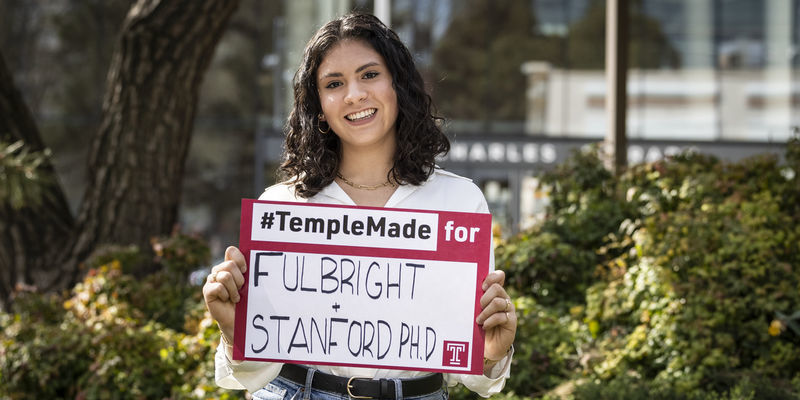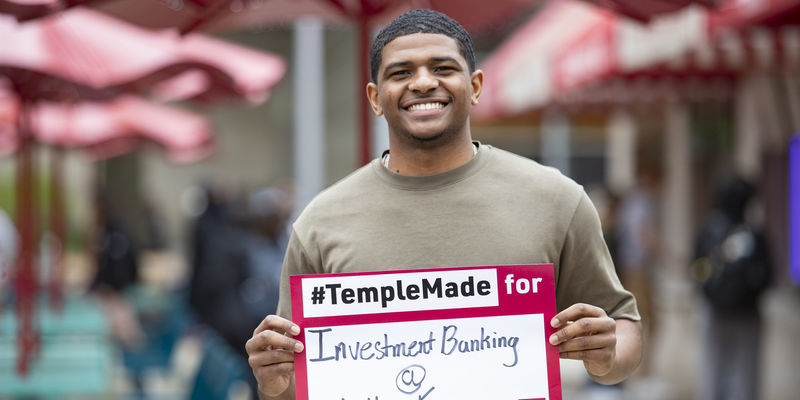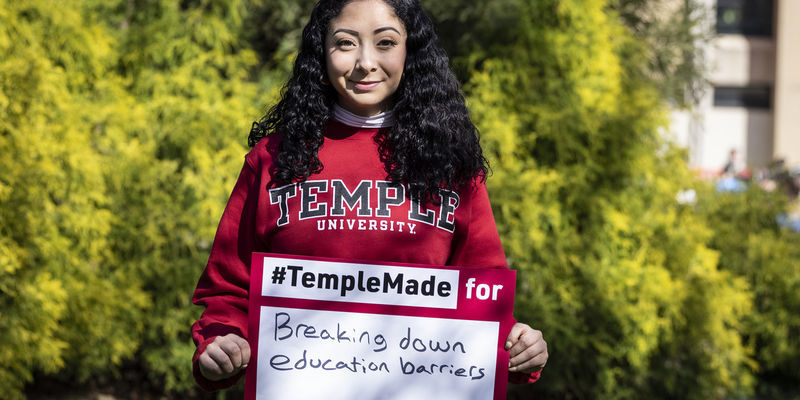Bengaluru native is Temple Made for research and clinical practice
Senior neuroscience major Dhruv Vajipayajula heads to Tufts University in Boston, where he will pursue a dual medical degree in its MD/PhD program.

Name: Dhruv Vajipayajula
Degree: BS, neuroscience
College: College of Science and Technology
Hometown: Bengaluru, India
A native of Bengaluru, India, Dhruv Vajipayajula has always had an interest in public service and a desire to help others. This ultimately helped him earn a merit scholarship to attend Temple University to pursue a degree in neuroscience.
“Temple’s combination of social and educational opportunities and its many accessible resources allowed me to learn a lot and enjoy my college experience,” said Vajipayajula. “The professors at Temple are amazing and I have made some incredible friends. No matter what country you come from, Temple will make you feel as if you are at home.”
As an undergraduate at Temple, he spent considerable time undertaking undergraduate research projects, inspiring him to apply to MD/PhD programs where he could have a scientific career that includes both research and clinical practice to advance the frontiers of healthcare.
“The study of medicine marks the intersection of solving problems and helping people, which is something I'm passionate about,” he said. “I had a long-standing interest in the sciences and a desire to learn.
At Temple, Vajipayajula worked in labs and studied platelets, tiny blood cells that help the body form clots to stop bleeding. As part of his work, he investigated causes of platelet activation in cardiovascular disease.
He credits Satya P. Kunapuli, director of the Sol Sherry Thrombosis Research Center and professor of cardiovascular sciences at Temple, for being instrumental in driving his research path.
“The professors at Temple presented many opportunities for research and our lab looked at a particular signaling protein called spleen tyrosine kinase (SYK) where we found certain molecular sites on the protein that drastically affect how platelets behave in different systems,” said Vajipayajula. “They also taught us the core neuroscience undergraduate courses like chemistry, organic chemistry and physics in a way that allowed students to excel at each subject.”
In the summer of 2023, Vajipayajula had to wake up at 4 a.m. some mornings as part of an eight-week program held at Thomas Jefferson Hospital where he shadowed physicians from each department, attending lectures and volunteering in its emergency department.
“I learned almost everything I know right now about the career I’m going into,” he said. “I came out of that experience realizing that working in academic medicine is exactly what I want to do.”
Vajipayajula is one of the many Class of 2024 graduates who persevered through the pandemic. That experience inspired him to research the causes of diseases and the drugs that treat them.
“I learned that it starts with looking for molecular causes and nuanced mechanisms that you can probe to help treat diseases and discover reasons for disease states,” he said. “There are clinical trials that test SYK inhibitors and drugs and look to mitigate the effects in a multitude of diseases like COVID-19, arthritis and more, so I am interested in the vast possibilities of research to find the answers to solutions we don’t have right now.”
Vajipayajula recently was accepted into the MD/PhD medical scientist training program at Tufts University in Boston, where he will continue to pursue a career in research and clinical practice in the fall.


